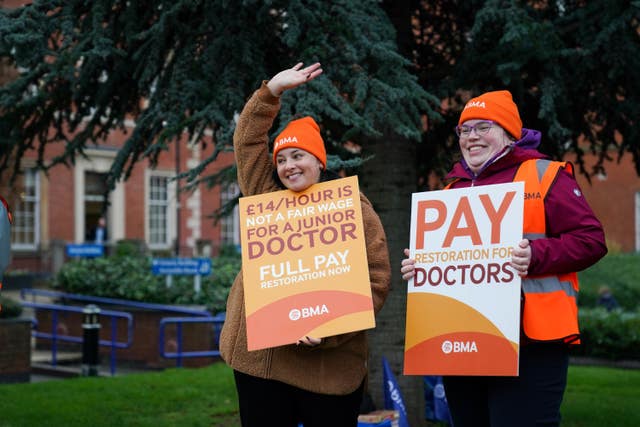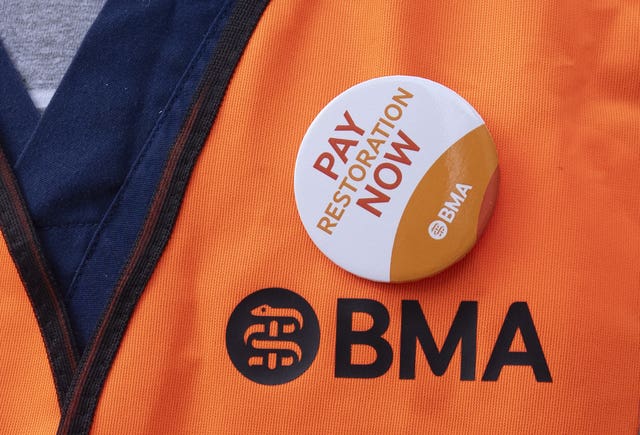
Six days of strikes by junior doctors in England later this month will put patients at “serious risk”, NHS leaders have said.
The NHS Confederation issued the warning as it reiterated its call for the walkouts to be called off and said trust bosses should not be “forced into this position again.”
It said the industrial action will leave hospitals, GP surgeries and other services “skating on very thin ice” and in a “highly vulnerable position” because it coincides with what is traditionally the busiest week of year for the NHS.
Flu and winter illnesses, combined with rising staff absences due to coronavirus, are set to add more pressure to services that will already be stretched by the strike.
The Government and British Medical Association (BMA) union must resume talks so a lasting compromise can be found “for the sake of the patients”, the confederation added.

Junior doctors are set to walk out from 7am on January 3 until 7am on January 9.
The strike amounts to 144 consecutive hours of industrial action – the longest in the 75-year history of the health service.
The union wants junior doctors to get a 35% pay rise, which it says would restore their real earnings to 2008 levels, but the Government says this is unaffordable.
An agreement allows striking junior doctors to be recalled for major incidents and in extreme circumstances.
The confederation is urging the BMA to respond quickly to requests for junior doctors to be recalled and for the judgement of senior medics to be “trusted” when they say they need cover from those on strike.
NHS Confederation chief executive Matthew Taylor said: “Many NHS trusts will have thin rotas and will be in a highly vulnerable position as they enter what is widely regarded as the busiest week of the year for local NHS services.
“Parts of the NHS will be skating on very thin ice, and they will need the BMA to back any recall requests for junior doctors when services find themselves under extreme pressure.
“With the chances of the strikes being called off all but over, the focus of every NHS leader and their staff is now on mitigating as many of the considerable risks that they face as possible.
“But they shouldn’t have to be forced into this position again, especially at such a busy time for local services.
“To face almost 150 hours of continuous stoppages is a serious and unprecedented risk – and one that NHS leaders and their staff have never experienced before.
“The good news is that the NHS has again prepared extensively and has had to become adept at planning for strikes.
“While they will again do all they can to mitigate the risks, especially for patients needing emergency care, they have again been left with no choice but to schedule in less activity in anticipation of the strikes.
“That means more delays for patients who have faced lengthy waits for routine treatment.”

Figures released last month showed more than 1.2 million appointments have had to be postponed because of industrial action in the NHS since it began in December 2022.
Strikes by junior doctors last month caused around 86,000 appointments to be put back.
Both strikes are expected to add to a growing post-pandemic backlog and make it harder for key waiting time targets to be hit.


Comments: Our rules
We want our comments to be a lively and valuable part of our community - a place where readers can debate and engage with the most important local issues. The ability to comment on our stories is a privilege, not a right, however, and that privilege may be withdrawn if it is abused or misused.
Please report any comments that break our rules.
Read the rules hereLast Updated:
Report this comment Cancel